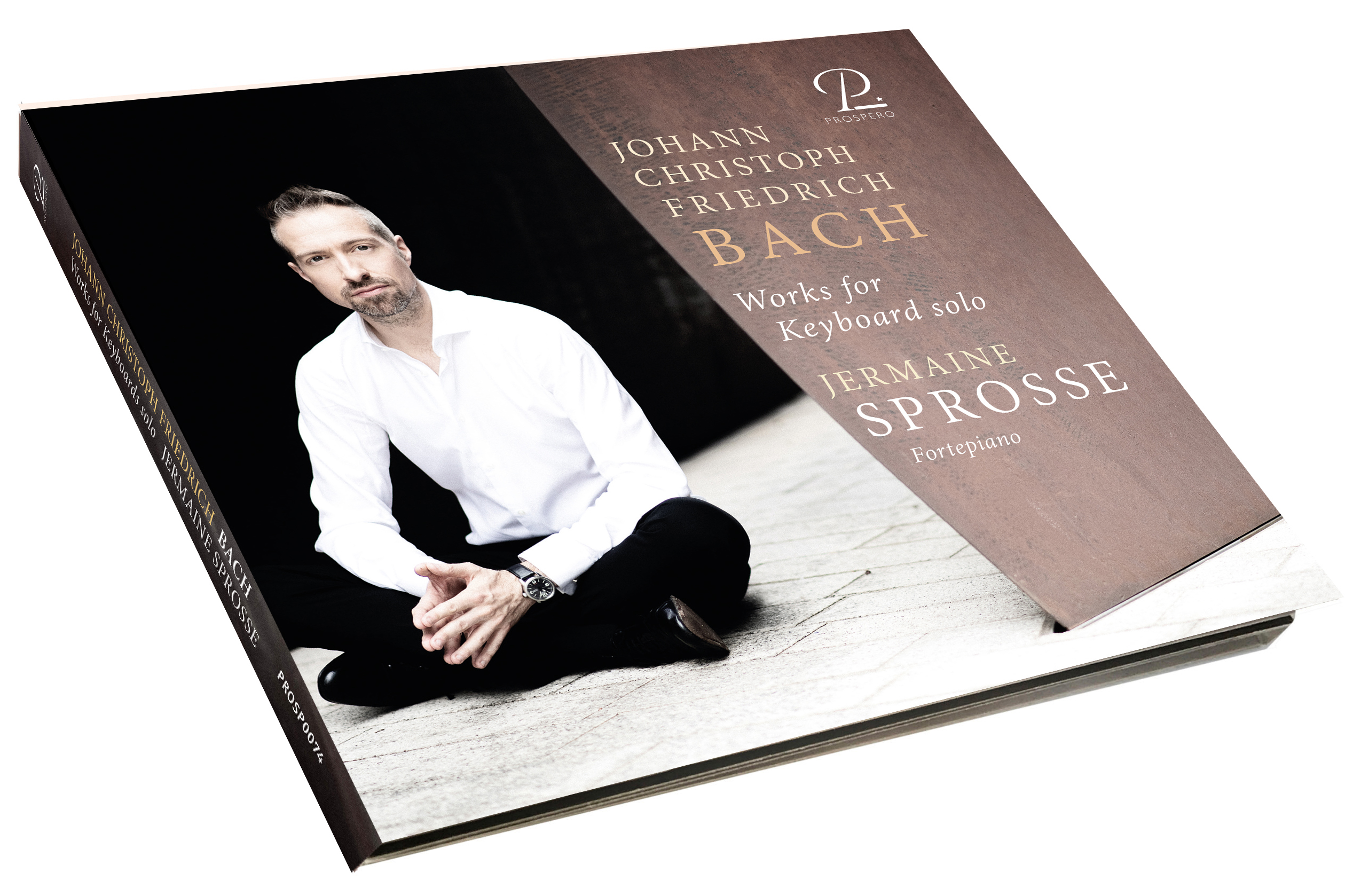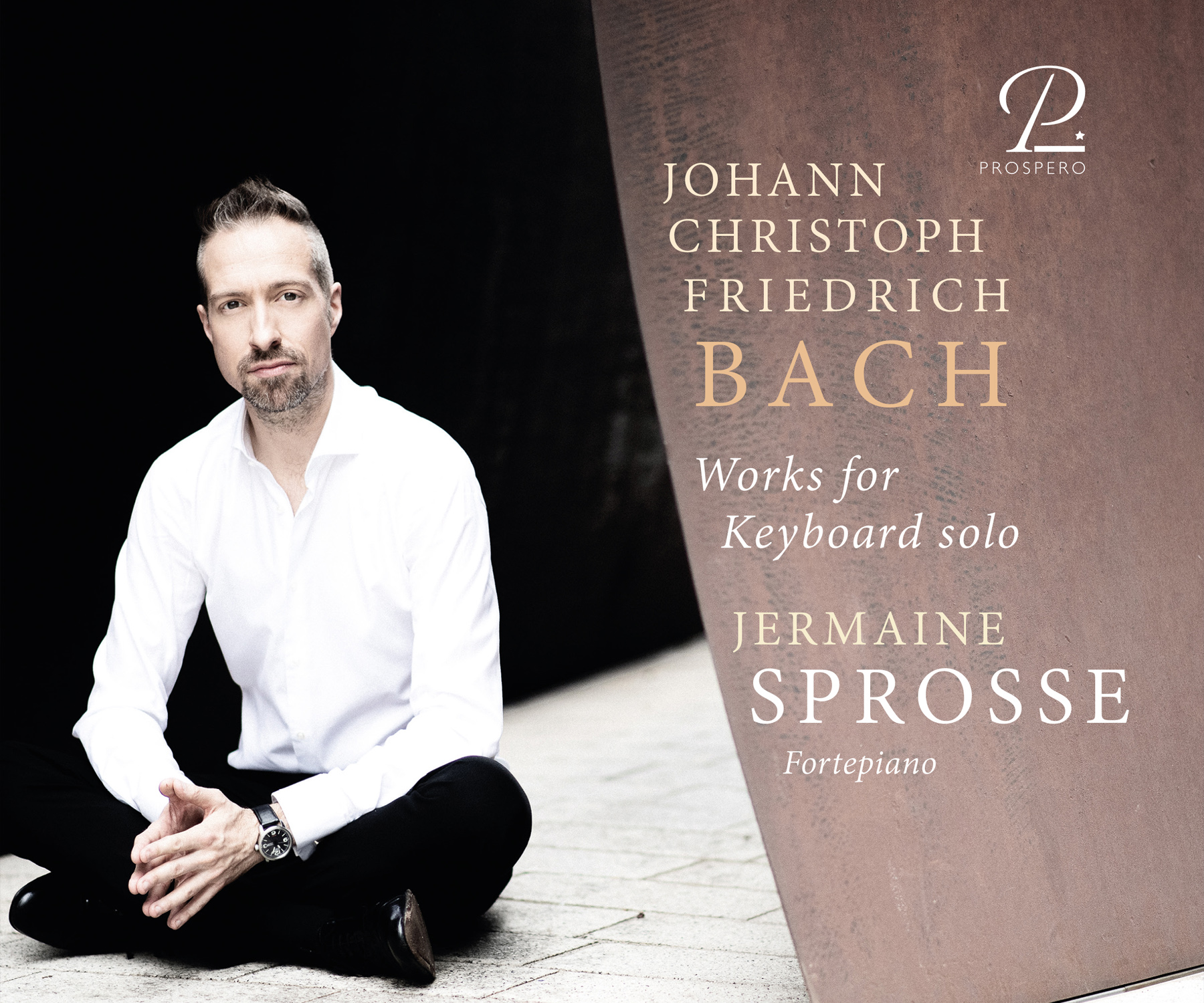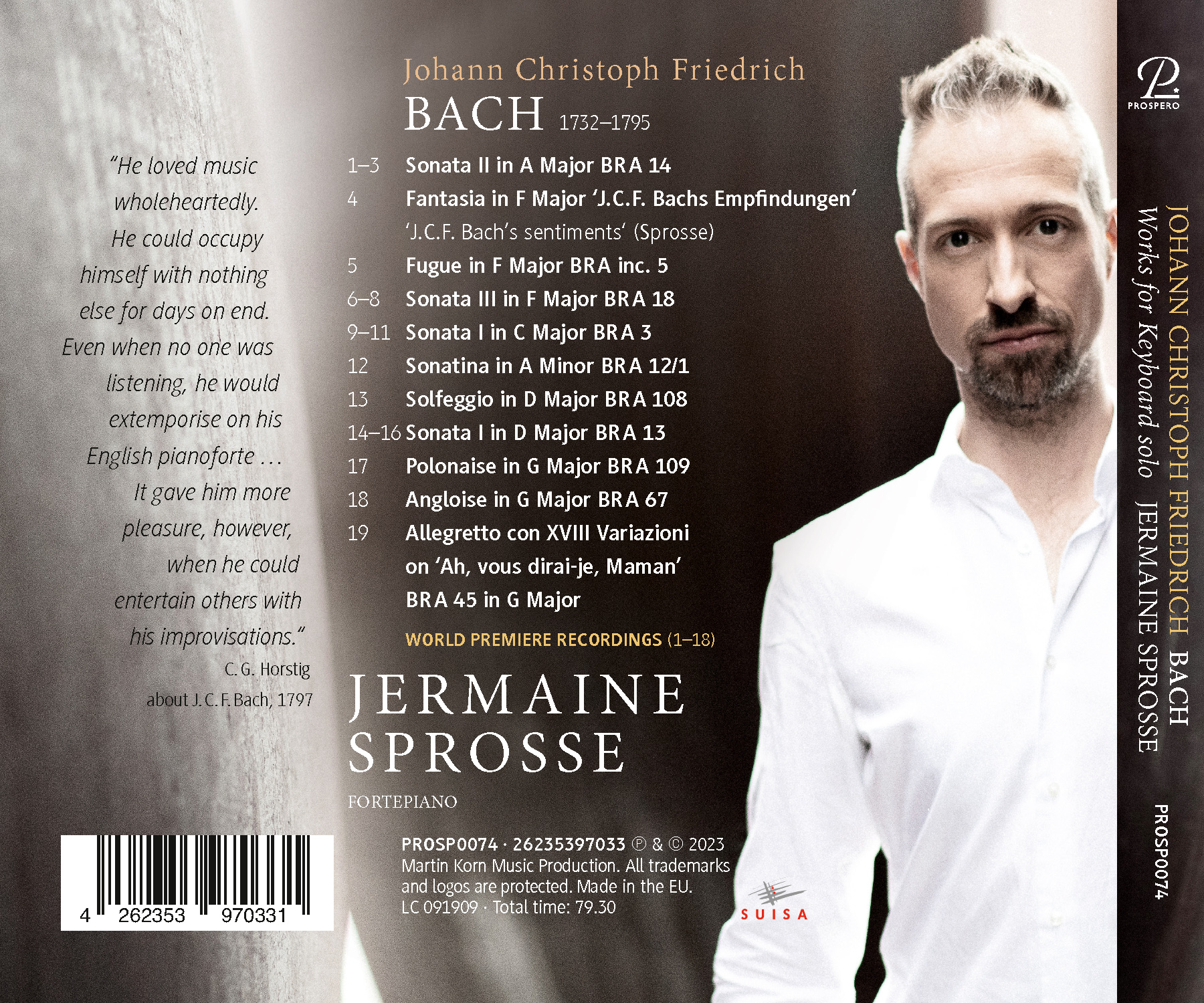Jermaine Sprosse: Works for Keyboard Instruments by Johann Christoph Friedrich Bach
Jermaine Sprosse: Works for Keyboard Instruments by Johann Christoph Friedrich Bach

Album Review
« … l’ancien élève de la Schola Cantorum de Bâle et désormais professeur au Conservatoire de Lyon signe non seulement une magistrale réhabilitation de l’œuvre pour clavier du « Bach de Bückeburg », mais aussi un des plus captivants disques de pianoforte qu’on ait entendu ces dernières années. La superbe captation sonore magnifie cette découverte. Bref rien ne démérite, tout justifie le compliment et la gratitude envers ce témoignage qui va faire référence, – gageons, pour longtemps. »
About New Album
Dass die Überlieferungen des bekannten Bach-Biographen Johann Nikolaus Forkel in Bezug auf Johann Christoph Friedrich Bach – den vergleichsweise wenig bekannten Dritten der komponierenden Söhne Johann Sebastian Bachs (zur Kennzeichnung wird er häufig „Bückeburger Bach“ genannt) – sehr spärlich ist, wurde dem Cembalisten Jermaine Sprosse schon während des Studiums von dessen Clavierwerken schnell deutlich. Umso mehr freut es ihn, hier nun ein Album mit ausgewählten, seiner Ansicht nach besonders gelungenen Sonaten und Einzelstücken des „Bückeburger“ Bachs vorzulegen. Besonders wichtig war es ihm, J. C. F. Bach als äußerst facettenreichen Komponisten zu zeigen. Deshalb wurde bei der Programmauswahl eine möglichst große Vielfalt an Gattungen und Formen, aber auch an Stimmungen, Affekten und Ausdrucksnuancen berücksichtigt, sodass Bach in seiner ganzen Bandbreite als Clavierkomponist zur Geltung kommen kann.
It quickly became clear to the harpsichordist Jermaine Sprosse during his study of Johann Christoph Friedrich Bach’s keyboard works that the records of the well-known Bach biographer Johann Nikolaus Forkel regarding Johann Christoph Friedrich Bach – the comparatively little-known third of Johann Sebastian Bach’s composing sons – are very sparse. He is all the more pleased to present here an album with selected sonatas and individual pieces by the «Bückeburg» Bach, which he considers particularly successful. It was particularly important to him to show J. C. F. Bach as an extremely multifaceted composer. For this reason, the programme selection took into account the greatest possible variety of genres and forms, but also of moods, affects and nuances of expression, so that Bach can be seen in his full range as a piano composer.



















